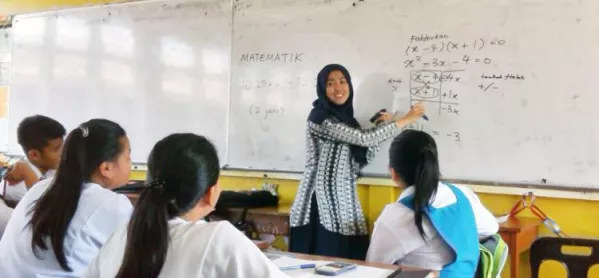Want to keep up with the latest education news and opinion? Follow TES USA on Twitter and like TES US on Facebook.
Malaysia is known for its immensely colourful, rich and diverse culture, but I wonder if we could do more to promote academic diversity and provide our students with balanced opportunities to flourish and grow to their full potential.
When students reach Form 3 (15-years-old), they sit for a major exam, called Pentaksiran Tingkatan 3 (PT3). The results of this affect whether they are streamed into arts or science classes for their final two years in school, but I feel this divide may be causing more harm than good.
The streams include pure science, sub science, communications (IT), accounts/economics, and arts and vocational, and there is a certain mark requirement for students to enter a specific stream. If that requirement is not met, they automatically fall into the next class.
Students who do well usually end up in the science stream where they focus on thinking rationally and slowly let go of their interest in the arts. Students who do not have a flair for the academic automatically fall into the arts stream, also deemed the lower classes.
The problem arises when a student aces the exams but doesn’t know where to go: what often happens is that the counsellor encourages them go to the science stream to “study more than play”.
Students fall through the cracks
Does a student have a brighter future as a scientist as opposed to an artist? Should exams and rubrics determine the future of the children of Malaysia?
As much as we may think the dual system of having arts and science streams should work wonders to bring out the best in students’ abilities, in reality, it is very much a binary where there will always be a large number who fall through the cracks.
I believe that having a balance of arts and science in the same classroom is key to having a balanced nation. If students are programmed to look down on the arts and think highly of science, I am worried we’ll end up with a nation of high-performers who care little for things like artistic expression. And on the other end of the spectrum, extremely talented people who are forced to forget their dreams and work odd jobs all their lives because they don’t look good on paper.
I grew up in this same system, and now that I’m a teacher, I view the challenges in a different light and want to know how I can be part of the solution for the future of my nation.
Huda Binti Nejim Al-Asedi joined the Teach For Malaysia Fellowship in 2015, and is currently teaching in a school in Sarawak, Malaysia


